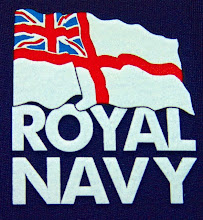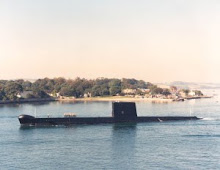Patrol boats crewed by armed guards to protect valuable ships in Gulf of Aden
Insurers have drawn up plans for the world’s first private navy to try to turn the tide against Somali pirates who continue to plague the global shipping industry by hijacking vessels for ransoms of more than £100m a year, The Independent has learnt.
The new navy, which has the agreement in principle of several shipping groups and is being considered by the British Government, is the latest attempt to counter the increasingly sophisticated and aggressive piracy gangs who operate up to 1,200 miles from their bases in the Horn of Africa and are about to launch a new wave of seaborne attacks following the monsoon season.
A multi-national naval force, including an EU fleet currently commanded by a British officer, has dramatically reduced the number of assaults in the Gulf of Aden in recent months. But seizures continue with 16 ships and 354 sailors currently being held hostage. The Independent has seen Nato documents which show both ransom payments and the period that pirates are holding vessels have doubled in the last 12 months to an average $4m and 117 days respectively.
In response, a leading London insurer is pushing ahead with radical proposals to create a private fleet of about 20 patrol boats crewed by armed guards to bolster the international military presence off the Somali coast. They would act as escorts and fast-response vessels for shipping passing through the Suez Canal and the Indian Ocean.
Jardine Lloyd Thompson Group (JLT), which insures 14 per cent of the world’s commercial shipping fleet, said the unprecedented “private navy” would work under the direct control of the military with clear rules of engagement valid under international law. Early discussions have also been held with the Ministry of Defence, the Department of Transport and the Foreign Office.
The revelation comes as a coalition of shipping organisations and seafarers’ unions today call for governments to dedicate greater resources towards tackling piracy off Somalia.
Sean Woollerson, a senior partner with JLT, told The Independent: “We are looking at setting up a private navy to escort vessels through the danger zones. We would have armed personnel with fast boats escorting ships and make it very clear to any Somali vessels in the vicinity that they are entering a protected area.
“At the moment there is a disconnect between the private security sector and the international naval force. We think we can help remedy that and place this force under the control of the multi-national force. We look after about 5,000 ships and have had 10 vessels taken in total, including a seizure where one crew member was shot and killed. Piracy is a serious problem, these are criminals basically extorting funds, so why not do something more proactive?”
The force, which would have set-up costs of around £10m, would be funded by insurers and shipping companies in return for a reduction on the anti-piracy insurance premiums, which average around £50,000 per voyage and can reach £300,000 for a super-tanker. The maritime insurance industry, much of it based in London, has borne the brunt of the financial cost of the piracy problem, paying out $300m (£191m) in ransoms and associated costs in the last two years alone.










.jpg)






